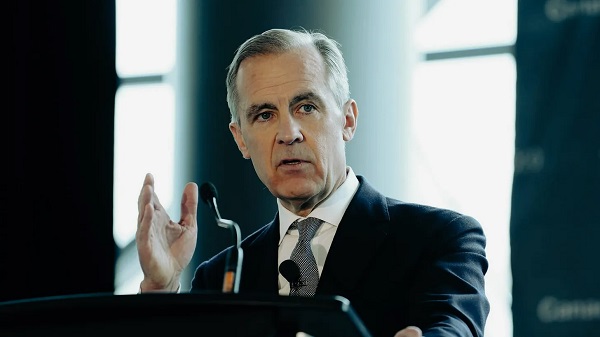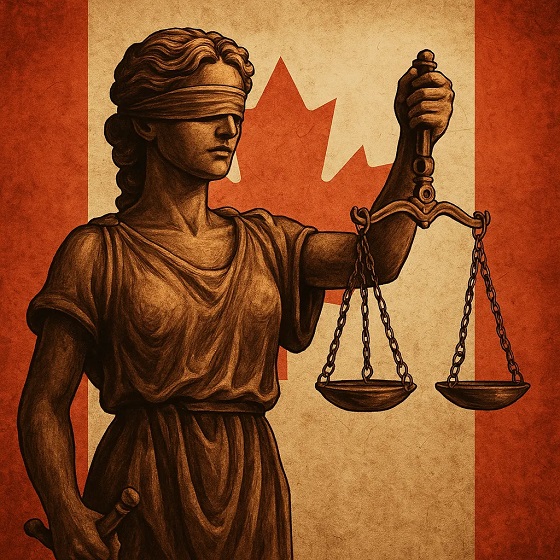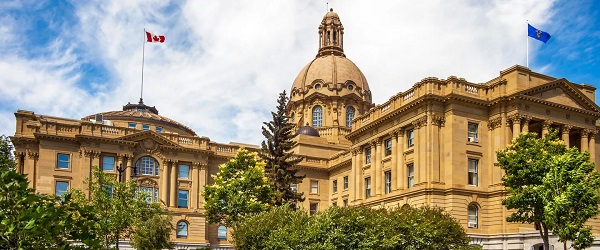Business
Foreign Confidence in Canadian Markets Is Collapsing

Net $8.3B walks out of Canada in June 2025 as foreigners dump stocks and sidestep Ottawa debt.
The headlines are polite. The money isn’t. If you want to know what investors really think about Canada right now, look no further then Canada’s international transactions in securities. In June, foreign buyers scooped up $6.9 billion in Canadian bonds and then turned around and dumped federal debt by $1.3 billion. Read that again. They’ll take yield from provinces and corporations, but they’re not lining up for Ottawa’s IOUs. That isn’t confidence; that’s scavenging.
Equities tell the same story, only louder. Foreign investors sold another $3.0 billion in Canadian stocks, with the banks and transportation names taking the hit. You don’t bail on bank shares in a country you believe is stable and growing; you bail when the future looks shaky. Under Mark Carney’s neat, technocratic rule, it looks shaky. The sales say more than any press conference ever could.
Meanwhile, the people with actual money inside the country are voting with their feet. Canadians bought $8.2 billion in foreign equities, including $5.7 billion in U.S. stocks—on top of a massive $14.3 billion the month before. They also dumped $7.5 billion in U.S. government bonds and pivoted into corporate credit instead. That’s not diversification; that’s a hedge against their own backyard.
So while ordinary families juggle rent hikes and grocery bills, the well-connected are quietly moving capital to places where growth is real and leadership exists. The pattern is obvious: foreigners are skittish about Canada’s prospects, and Canadian elites are acting like the smart money always does—leaving before the crowd figures it out. If this is what “stability” looks like after a decade of Liberal management, investors have delivered the verdict already.
Subscribe to The Opposition with Dan Knight .
For the full experience, upgrade your subscription.
Automotive
Big Auto Wants Your Data. Trump and Congress Aren’t Having It.


From the Daily Caller News Foundation
Congress is not going to allow Big Auto to sideline consumer privacy and safety while getting subsidized massively by the federal government.
That is because, in late September, by an overwhelming vote of 50 to 1, Chairman Brett Guthrie’s (R-KY) House Energy & Commerce Committee joined the Senate Commerce, Science, and Transportation Committee in passing the AM Radio for Every Vehicle Act.
This legislation is in response to some automakers removing AM radios from new model vehicles despite pleas from America’s public safety community not to do so.
Dear Readers:
As a nonprofit, we are dependent on the generosity of our readers.
Please consider making a small donation of any amount here.
Thank you!
“They’d rather force consumers to use their infotainment devices — which collect and sell their third-party data — than protect American lives,” Corey Lewandowski, President Trump’s 2016 campaign manager and senior adviser to his 2020 and 2024 campaigns, stated.
The entirety of America’s public safety community spanning the federal, state, and local levels, insists AM radio remaining in cars is critical for protecting the nation’s emergency alerting systems. These systems rely heavily upon AM radio, the only communication method that has stayed reliably accessible during many disasters such as the Sept.11 terrorist attack and major disasters like Hurricanes Katrina, Sandy, and most recently, Helene.
Brendan Carr, the current chairman of President Trump’s FCC, nominated by President Trump, has also endorsed the AM Radio for Every Vehicle Act. In a statement, Carr said that “millions of Americans depend on the value of AM radio and the local news that AM broadcasters offer in communities across the country.” He also recounted hearing firsthand stories of Hurricane Helene victims who “could only access lifesaving information in the days following the storm by tuning into their AM radios.”
AM radio also serves another purpose that the elites in Silicon Valley and Detroit often forget: it keeps rural and working-class America connected. Millions of people outside the big cities rely on AM for local news, farm reports, weather alerts, and even community events. For many small towns, AM stations are a lifeline—far more reliable than expensive streaming services or spotty cell coverage. Pulling it out of cars is yet another way of telling Middle America: “you don’t matter.”
Of course, no good idea in Washington is safe from special interests.
Despite the broad support within Congress, the administration, and throughout the public safety and first responder communities, the bill has faced a full-court press by the musicFIRST Coalition — a group backed by the Recording Industry of America — to tank the legislation unless it is tied to unrelated music royalty reform legislation. That’s cronyism politics at its worst—holding public safety hostage to squeeze out another payday.
However, now that the AM Radio for Every Vehicle Act has passed both committees by overwhelming margins, the only stop left for the legislation is the House and Senate Floor — meaning Speaker Mike Johnson (R-LA) and House Majority Leader John Thune (R-SD) must call it up for a roll call vote.
At the heart of this fight is more than just whether a radio dial stays in your dashboard. It’s about whether Americans can trust that their safety won’t be sacrificed for corporate profit.
It’s also about data privacy. Automakers and Big Tech are eager to funnel drivers into infotainment systems that monitor every move, harvest personal information, and sell it to the highest bidder. AM radio doesn’t spy on you. It doesn’t crash when the grid goes down. It doesn’t put profit ahead of people. It just works.
For the sake of both public safety and personal freedom, Congress should make sure it stays that way.
Ken Blackwell (@KenBlackwell) is an adviser to the Family Research Council and a chair at the America First Policy Institute. He is a former Mayor of Cincinnati, Ohio, Ohio Treasurer and Secretary of State, and U.S. Ambassador to the United Nations Human Rights Commission. He is also a former member of the Trump transition team.
Agriculture
Carney’s nation-building plan forgets food

This article supplied by Troy Media.
Canada’s agri-food sector powers $90 billion in exports and one in nine jobs, yet it’s missing from the fed’s flagship infrastructure agenda
Prime Minister Mark Carney’s “nation-building” strategy may boast big wins for energy and infrastructure, but it sidelines one of Canada’s greatest economic assets: food.
His first five flagship projects—the LNG terminal in Kitimat, a small modular nuclear reactor in Darlington, the $1-billion Contrecoeur container terminal east of Montreal and mineral developments in B.C. and Saskatchewan—send a message that Ottawa is ready to build. But for all their ambition, they overlook the sector that feeds the country, powers $90 billion in exports and supports one in nine jobs.
Canada is one of the world’s great breadbaskets—reliable, safe and absurdly productive. The agrifood sector isn’t just farms and tractors; it’s one of the most advanced, innovative ecosystems we’ve got. And yet, among Carney’s first round of “nation-building” moonshots, food didn’t even get a seat at the table.
Sure, the expanded port in Montreal will help grain and processed food shipments. And yes, stable nuclear power might one day shave energy bills for processors and greenhouse growers. But these are trickle-down perks—not the kind of direct investment the sector actually needs. Food deserves its own spotlight.
This oversight isn’t just symbolic—it exposes real pressure points that threaten the entire system. Take Western Canada’s beef-packing bottleneck, for example: a few mega-facilities dominate the sector, so when one gets gummed up by a strike or shutdown, it sends shockwaves through the entire supply chain. Farmers are left holding the bag—and consumers feel the hit. Expanding and decentralizing capacity would help, but that’s just scratching the surface.
If Carney wants to prove Canada can be a food power as much as an energy one, we need projects with the same heft and urgency as those just announced. To match the ambition of Carney’s energy and infrastructure plans, here are five food-sector nation-builders that would move the dial:
1. The Prairie Gateway Grain and Pulse Terminal—a rail-linked export hub in Saskatchewan or Manitoba—would get lentils, peas, canola and wheat to global
markets fast. Think Contrecoeur, but for the Prairies.
2. Protein Supercluster 2.0 would string together state-of-the-art processing facilities to transform raw commodities into premium plant proteins, canola oil and biofuels. A second-generation government-backed innovation corridor, it would help Canada move from raw exports to value-added, export-ready, job-creating production.
3. A National Plant and Animal Science Campus, inspired by Wageningen University in the Netherlands—a world leader in agricultural research—would centralize the kind of next-gen crop science, livestock genomics and climate-resilient breeding Canada will need to compete in the decades ahead. Call it moonshot science; we’ve been staring at the ground too long.
4. Northern Food Sovereignty Corridors, featuring investments in greenhouses, vertical farms and logistics, would reduce reliance on overpriced imports and bring fresh food, and economic independence, to northern and Indigenous communities. It would also move reconciliation from speech to action.
5. A Digital Food Traceability Network would use blockchain and AI to track food from seed to supper, slashing waste, boosting consumer confidence and giving our exports a transparency edge in an increasingly picky global market.
Carney’s five projects are a solid start. They prove Canada can think big. But a real strategy needs to feed people as well as power them. Agriculture can’t remain the forgotten cousin in economic planning.
The point isn’t to downplay the importance of energy or mining. Mines and reactors may fuel prosperity but it’s food—and the infrastructure, science and innovation behind it—that will secure it. Canada’s real strength lies not just under the ground but in the fields, labs and refrigerated supply chains that keep our plates full and our trading partners coming back for seconds.
Dr. Sylvain Charlebois is a Canadian professor and researcher in food distribution and policy. He is senior director of the Agri-Food Analytics Lab at Dalhousie University and co-host of The Food Professor Podcast. He is frequently cited in the media for his insights on food prices, agricultural trends, and the global food supply chain.
Troy Media empowers Canadian community news outlets by providing independent, insightful analysis and commentary. Our mission is to support local media in helping Canadians stay informed and engaged by delivering reliable content that strengthens community connections and deepens understanding across the country.
-

 Artificial Intelligence1 day ago
Artificial Intelligence1 day agoThe App That Pays You to Give Away Your Voice
-

 Health1 day ago
Health1 day agoThe Religious Faith in Vaccines has been Challenged, Forcing New Studies and More Rigorous Standards
-

 Agriculture5 hours ago
Agriculture5 hours agoCarney’s nation-building plan forgets food
-

 Fraser Institute6 hours ago
Fraser Institute6 hours agoAboriginal rights now more constitutionally powerful than any Charter right
-

 Alberta7 hours ago
Alberta7 hours agoAlberta puts pressure on the federal government’s euthanasia regime
-

 Censorship Industrial Complex2 days ago
Censorship Industrial Complex2 days agoBill C-9 and the Tyranny of Feeling Heading Straight for Canadians
-

 Red Deer9 hours ago
Red Deer9 hours agoThe City or Red Deer Financial Troubles: The Role of Good Governance, Effective Policies and Key Performance Metrics.
-

 Health2 days ago
Health2 days agoDisabled man needs help as hospital continues to pressure him with assisted suicide








